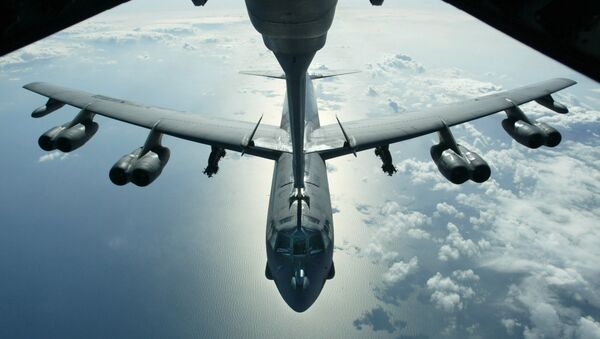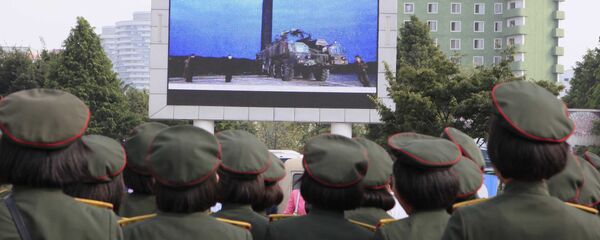Senior government advisers and military officers warned Beijing on Saturday that the escalation of the war of words between US President Donald Trump and North Korean leader Kim Jong-un indicates that China must remain on high alert for war on the Korean peninsula, as the risk of conflict has never been greater.
"North Korea is a time bomb," detailed China's executive-level State Council cabinet advisor Shi Yinhong during a Beijing conference on the Korean crisis.
"We can only delay the explosion, hoping that by delaying it, a time will come to remove the detonator," said Shi, a Renmin University international relations professor, cited by the South China Morning Post (SCMP).
Recent moves by China, including support for Western sanctions against Pyongyang, indicate that Beijing is losing control of what influence it has in the ongoing crisis, Chinese government advisors have warned.
"Conditions on the peninsula now make for the biggest risk of a war in decades," added Shi.
In his warnings, Shi asserted that it was already too late to avert open war, as Trump and Kim remain locked in a rapidly escalating exchange of threats.
During the conference, Wang Hongguang, a former Chinese high-ranking military commander and current Beijing advisor, warned that war on the Korean peninsula could erupt at any time, particularly as the US and South Korea will hold their large-scale annual military drills in March.
"It is a highly dangerous period," said Wang, adding, "China should mobilize [its] defences for war."
China foreign ministry senior fellow Yang Xiyu, with the China Institute of International Studies, declared that Beijing was past the point where it could calm tensions in the region, asserting that the state of threat on the Korean peninsula was at its most dire in half a century.
"No matter whether there is war or peace, regretfully, China has no control, dominance or even a voice on the issue," Yang claimed, cited by SCMP.
Speaking at the conference, Nanjing University professor Zhu Feng stated that China must prepare for "a catastrophic nuclear conflict, nuclear fallout or a nuclear explosion."
"Why do we always act like ostriches?" Zhu asked, adding, "Why do we always believe a war won't occur?"
In recent remarks to the United Nations in New York, US Secretary of State Rex Tillerson acknowledged a growing helplessness by Washington to quell the conflict, and asked for additional efforts by both China and Russia to get the DPRK to end its nuclear-weapons program.
Chinese government advisor Shi agreed with Tillerson's observation, noting that any hope for peace cannot rest with Kim and Trump, and pointing out that China and Russia must work together to convince Pyongyang and its adversaries in the west to stand down from their aggressive military footing.



